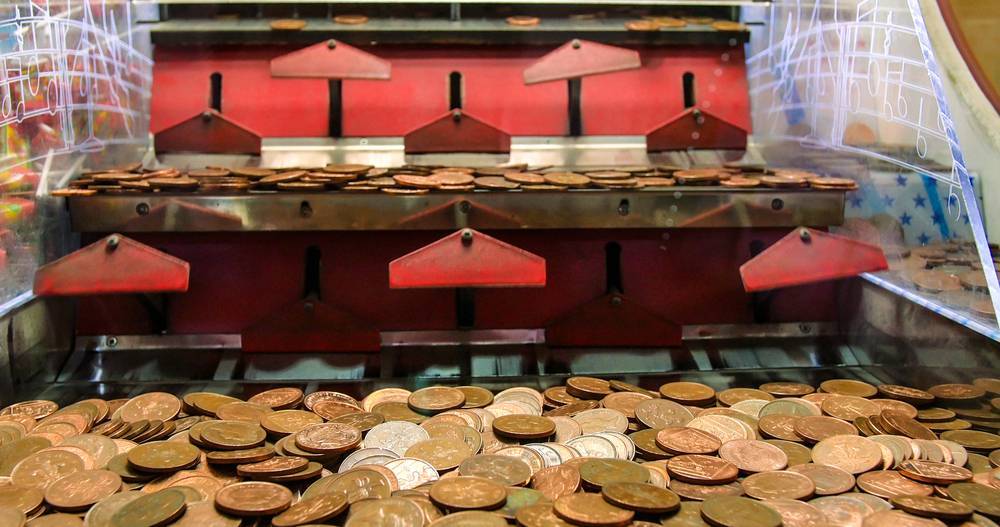Coin-pusher machines have become an increasingly popular form of amusement in many Asian countries.
Often found in arcades, shopping malls, and entertainment centers, these machines captivate players with their straightforward and addictive gameplay: insert a coin, watch it drop, and hope that it pushes other coins over the edge for a prize. However, this seemingly harmless pastime has a dark side – the escalating problem of addiction to coin-pusher machines in Asia.
The Growing Concern of Coin-Pusher Addiction in Asia
As coin-pusher machines become more widespread across Asia, an increasing number of people are succumbing to their addictive nature. Players are drawn to the prospect of winning big, with machines frequently offering enticing rewards like gift cards, gadgets, or even cash. The issue of coin-pusher addiction not only affects adults, but also impacts younger populations, who may be more vulnerable to the temptation of effortless winnings.
Understanding the Psychology Behind Coin-Pusher Addiction
Coin-pusher machines employ several psychological techniques to keep players engaged:
Intermittent reinforcement: The machines provide unpredictable rewards, which can be more addictive than consistent rewards. This uncertainty keeps players hooked and constantly hoping for a substantial win.
Near-miss effect: Players often encounter “near misses,” where their coin almost pushes other coins over the edge. This fosters the belief that success is imminent, encouraging players to continue playing.
Illusion of control: Players might feel they have control over the outcome, even though the result is primarily determined by chance.
Social influence: The presence of other players and the excitement of their wins can further fuel the desire to keep playing.
The Repercussions of Coin-Pusher Addiction
The consequences of coin-pusher addiction can be serious, affecting numerous aspects of an individual’s life:
Financial strain: Players can quickly accumulate substantial losses while chasing the elusive big win, leading to financial difficulties and even debt.
Emotional distress: Addiction to coin-pusher machines can result in feelings of anxiety, depression, and guilt, as players struggle to cope with their mounting losses and the inability to stop playing.
Relationship strain: Addiction can cause players to prioritize gaming over their relationships, resulting in conflicts and, in extreme cases, the breakdown of relationships with friends and family.
Physical health: Extended periods of playing can lead to neglecting self-care and health.
Addressing the Problem: Prevention and Support
To tackle the increasing issue of coin-pusher addiction in Asia, a multifaceted approach is necessary:
- Regulation and oversight
Governments and regulatory bodies must enforce stricter controls on the availability and operation of coin-pusher machines, especially in areas frequented by susceptible populations. - Education and awareness
Public education campaigns should raise awareness about the risks of coin-pusher addiction and promote responsible gaming habits. - Support networks
Accessible resources and support networks, such as helplines and counseling services, should be available to those struggling with addiction. - Research
Continued research on the psychological mechanisms underlying coin-pusher addiction can help inform effective prevention and intervention strategies.
Community Involvement: A Collective Effort
Addressing the issue of coin-pusher addiction in Asia requires a collective effort from various stakeholders, including community leaders, educators, parents, and gaming industry representatives.
- Parental guidance: Parents should be aware of their children’s gaming habits and educate them about the potential risks of coin-pusher machines. Open communication and setting boundaries can help prevent excessive gaming and the development of addiction.
- Responsible gaming initiatives: Gaming industry representatives can play a crucial role in promoting responsible gaming practices by incorporating warning signs and time limits on coin-pusher machines, as well as providing information on where to seek help for addiction.
- School programs: Educational institutions can incorporate lessons on responsible gaming and the risks of addiction into their curricula, ensuring that students are well-equipped to make informed decisions about their gaming habits.
- Community support groups: Establishing support groups within local communities can provide a safe space for individuals struggling with coin-pusher addiction to share their experiences and seek guidance from others who have faced similar challenges.
The growing addiction to coin-pusher machines is a complex issue that demands attention from various sectors of society. By working together, these groups can develop and implement strategies to protect vulnerable individuals from the dangers of coin-pusher addiction.

